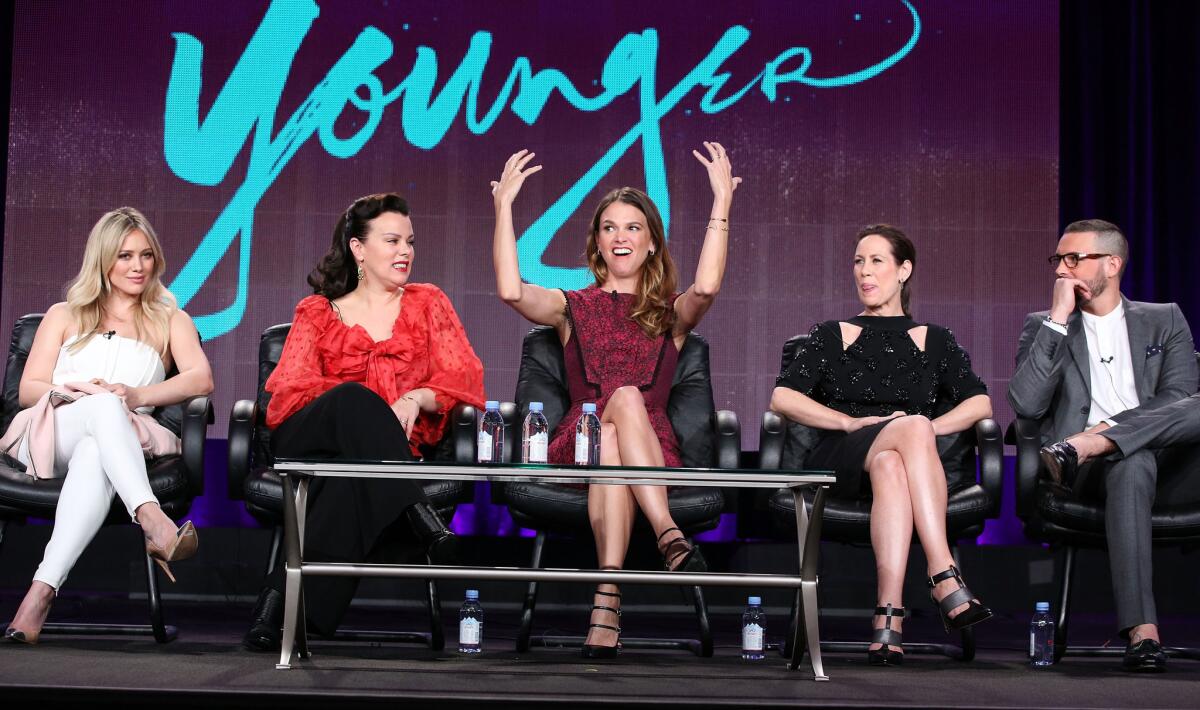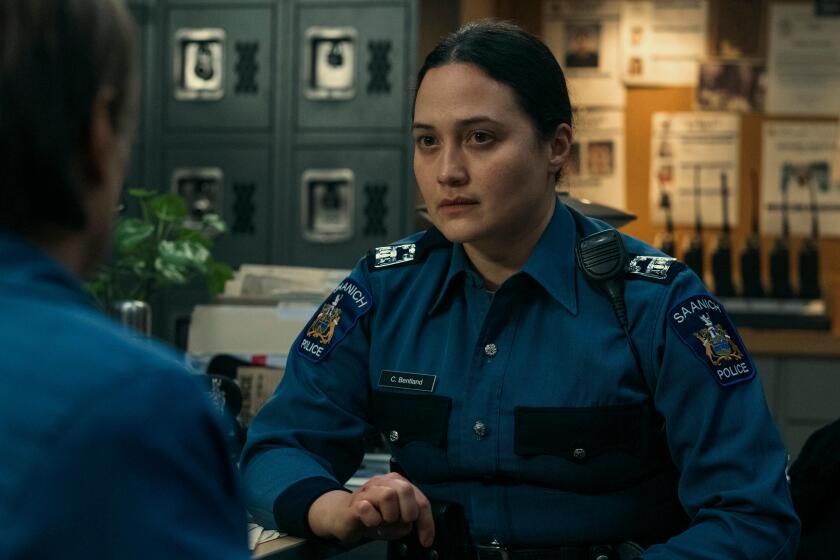TCA 2015: Show runners discuss the changing TV landscape

Running a TV show isn’t what it used to be.
The modern viewing patterns of TV audiences from a linear method to a wherever, whenever style isn’t just affecting old-school business models, it has resulted in a more-enlightened viewer -- inevitably shifting the way show runners approach their jobs.
Executive producers that helm Universal Cable Production-backed shows -- Natalie Chaidez (“12 Monkeys”), Tim Kring (“Dig”), Marti Noxon (“Girlfriends’ Guide to Divorce”) and Sean Jablonski (“Satisfaction”) -- gathered Thursday at the Television Critics Assn. press tour in Pasadena to talk about the intricacies of running a show in the midst of the current TV revolution.
Kring, whose credits also include “Heroes” and “Crossing Jordan,” noted that the modern TV viewer is as passionate as ever.
A consistent note in the past from networks, he said, was that a loyal viewer was “only watching one out of every three episodes of the show.”
That resulted in “constantly having to retell things, remind them of this or remind them of that,” Kring said. “The new viewer is now watching every episode. They also have a vast reference world to find stuff out about a show. It’s less pedantic, less spoon-feeding. It allows you to be more subtle.”
Chaidez, who worked with Kring during the run of “Heroes,” pointed out their use of cliffhanger-like jolts at the end of each episode as a way to keep viewers coming back. Kring said that approach has evolved somewhat in today’s climate, when a viewer can wait until a season is over before starting to watch.
“Viewing habits have softened the need for it,” Kring said. “We had the week-to-week idea. People had to wait six days to watch the next one, so the big cliffhanger was really a massive tool in the arsenal.”
“You kind of get hoisted by your own cleverness,” he added
Noxon, who gained attention writing and producing on “Buffy the Vampire Slayer,” said it has bred a generation of TV worms who are now proficient in the art of storytelling.
“Scenes get shorter because people are more steeped in the narrative language now,” Noxon said. “You don’t have to spell as much out now.”
Of course, the new TV world order has also made viewers more impatient. They want their show. And they want it batches.
“People are very frustrated that they can’t have next week’s episode [of “Girlfriends’ Guide to Divorce’],” Noxon said. “I think that frustration is good.”
Twitter: @villarrealy
More to Read
The complete guide to home viewing
Get Screen Gab for everything about the TV shows and streaming movies everyone’s talking about.
You may occasionally receive promotional content from the Los Angeles Times.







